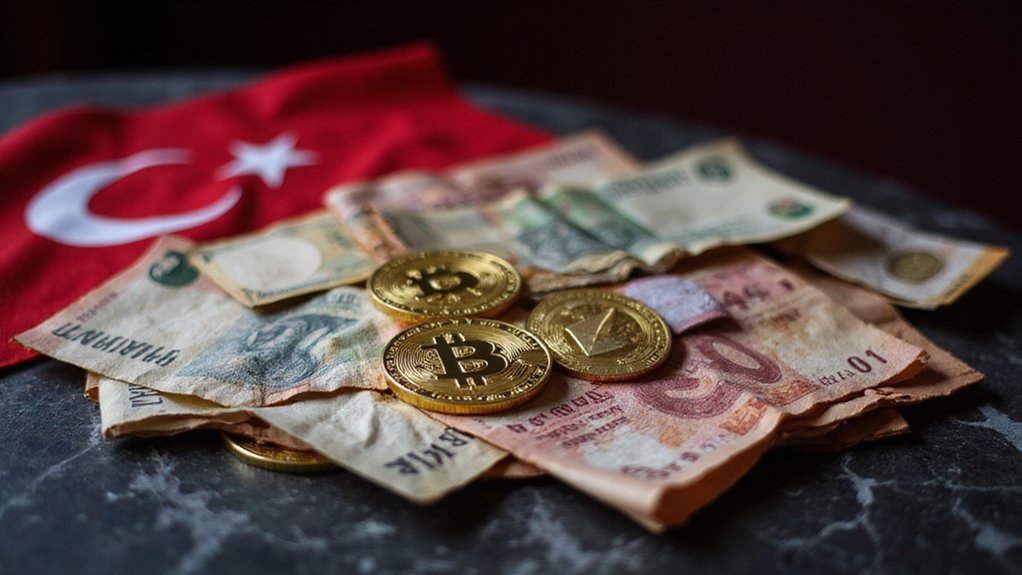While Turkey’s relationship with cryptocurrency has resembled a regulatory rollercoaster more than a coherent policy framework, the nation’s latest legislative maneuvers represent perhaps the most ambitious attempt yet to simultaneously embrace and constrain digital assets.
The Turkish government’s 2025 regulatory framework creates a curious paradox: cryptocurrencies are legal, yet their use as payment methods remains strictly prohibited. This Schrödinger’s cat approach to digital assets reflects Ankara’s desperate attempt to stabilize the declining lira while acknowledging crypto’s inevitable presence in modern finance.
The central bank’s April ban on crypto payments, citing anonymity concerns and potential “unrecoupable losses,” reveals an institution grappling with forces beyond its traditional monetary control.
Central banks worldwide struggle to maintain monetary authority as decentralized digital currencies challenge centuries-old financial control mechanisms.
For crypto asset service providers (CASPs), the new rules demand substantial skin in the game. Exchanges must maintain minimum paid-in capital of 150 million Turkish lira (approximately $4.1 million), while custodians face even steeper requirements at 500 million lira ($13.7 million). These aren’t mere regulatory hoops—they’re financial fortresses designed to professionalize an industry notorious for spectacular collapses and vanishing acts.
The compliance machinery runs deep, with transactions exceeding 15,000 lira ($425) triggering mandatory identity verification. CASPs must monitor price fluctuations continuously, maintain detailed transaction records, and impose withdrawal delays of 48 to 72 hours—measures that transform the crypto experience from lightning-fast to bureaucratically measured. The Capital Markets Board now holds full regulatory authority over crypto platforms, consolidating oversight under a single institution. Platforms must establish video identification methods for remote customer onboarding while ensuring continuous verification processes with trained staff.
Despite these restrictions, Turkish crypto adoption remains paradoxically robust. The country leads Middle Eastern transaction volumes, driven by citizens seeking refuge from inflationary pressures. Bitcoin’s 95% year-to-date price increase through April demonstrates how regulatory friction often correlates inversely with domestic demand. As institutional adoption accelerates globally, Turkey’s restrictive approach increasingly contrasts with markets embracing cryptocurrency’s technological advancements.
Turkey’s approach reflects broader tensions between monetary sovereignty and financial innovation. The government’s simultaneous embrace of crypto’s legitimacy while restricting its utility creates regulatory arbitrage opportunities that sophisticated users will inevitably exploit.
Whether this delicate balancing act can preserve the lira’s primacy while accommodating digital asset innovation remains the trillion-lira question. For now, Turkish crypto users navigate an increasingly complex landscape where compliance costs and withdrawal delays test their commitment to decentralized finance’s original promise.









